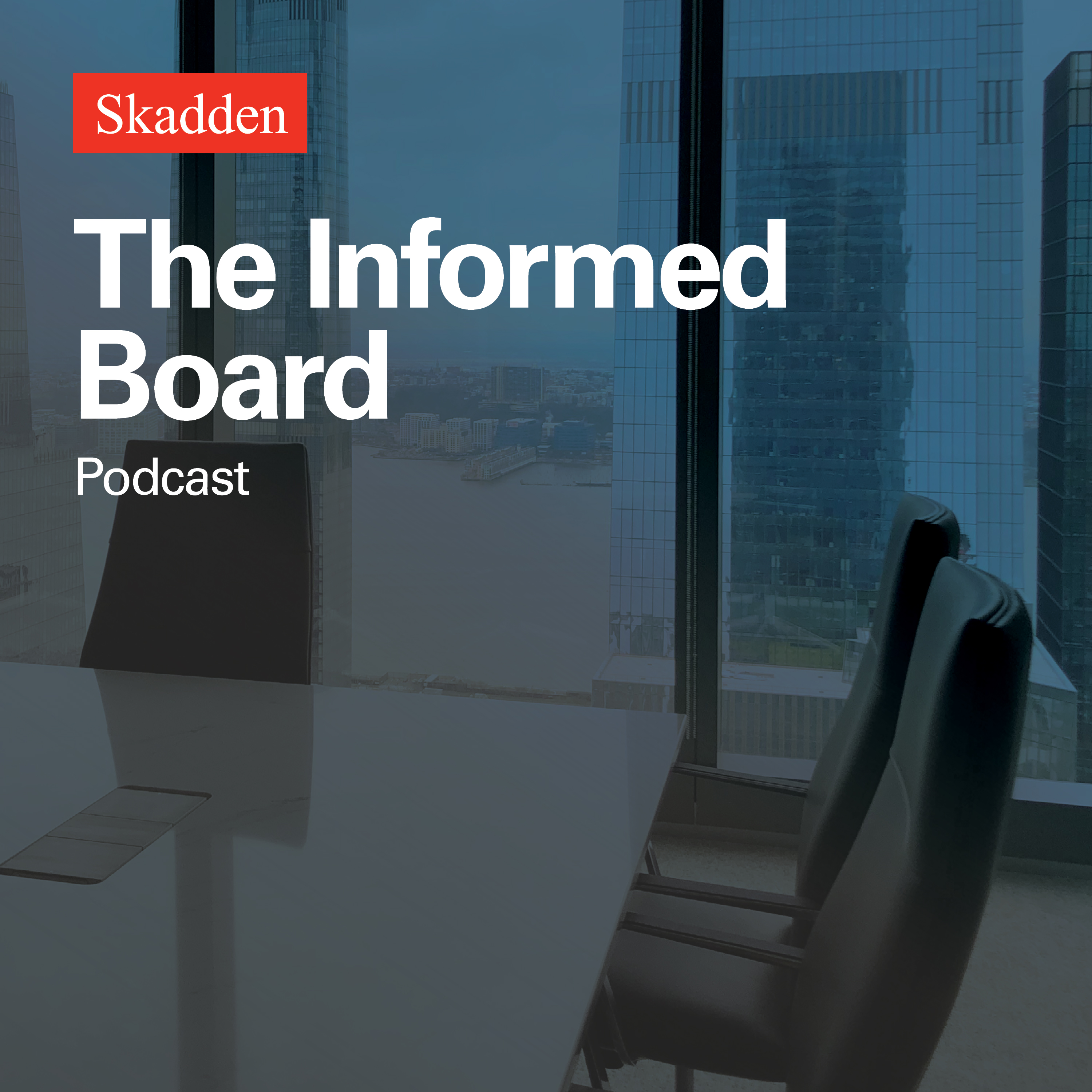How Antitrust Regulators and the SEC Are Advancing the Wider Biden Agenda
Description
In this inaugural episode of “The Informed Board” podcast, Skadden partners Maria Raptis and Raquel Fox join our host Ann Beth Stebbins to discuss changing approaches to antitrust and securities regulation in Washington. They talk about new priorities in antitrust enforcement, new disclosure initiatives by the Securities and Exchange Commission (SEC), and the obstacles that could hinder regulatory rulemaking.
Since President Biden took office, there has been a shift in Washington. The administration’s policies were no surprise; the president campaigned on them. But the ways in which regulatory agencies have been harnessed to pursue the administration’s objectives is new: broadly exercising their review authority and proposing a host of new regulations with expansive goals unrelated to their traditional mandates. In part, this reflects the difficulty of passing legislation in areas that are priorities for the administration.
In antitrust, the focus has broadened under the Biden administration. Top officials believe that antitrust enforcement has been too lax, leading to too much consolidation and too much concentration of economic power. Antitrust officials contend that the consumer welfare criteria that have dominated antitrust analysis for the past 50 years are too narrow, and that antitrust laws give antitrust agencies a broader mandate to consider the impact of mergers on workers and small business.
However, Maria says we’re unlikely to see a sea change in antitrust law anytime soon unless legislation is passed to change the legal standards and make it easier for the FTC and the Department of Justice to challenge mergers. Despite antitrust regulators’ ambitious goals, there are many obstacles to swift, sizeable change, including many decades of court precedent that focus on consumer welfare tests.
On the SEC side, for the first time in many years, the agency’s rulemaking resources are not devoted to congressionally mandated regulations, so the commission can take up broader issues prioritized by the White House, including climate change and human capital. The SEC recently proposed new rules requiring detailed climate disclosure, and we expect proposed rules requiring additional workforce-related disclosures before the end of the year.
But, like the new antitrust policies, the SEC’s initiatives may be challenged in court. Critics say the climate disclosures would require costly outside audits and attestations, as well as complex greenhouse gas measurements, Raquel explains. The proposed rules might be challenged either on the ground that the costs outweigh the benefits or that, with no explicit legislative mandate, the proposed disclosure requirements are beyond the SEC’s remit.
💡 Meet Your Host 💡Name: Ann Beth Stebbins
Title: Partner at Skadden
Connect: LinkedIn
💡 Featured Guests 💡Name: Maria Raptis
Organization: Skadden
Connect: LinkedIn
Name: Raquel Fox
Organization: Skadden
Connect: a href="https://www.linkedin.com/in/raquel-fox/" rel="noopener noreferrer"...
More Episodes
In this episode of the Informed Board podcast, our host, Skadden M&A partner Ann Beth Stebbins is joined by guest, Rebecca Corbin from Corbin Advisors, to explore the critical role that board directors play in shareholder engagement. Corbin stresses that a proactive approach toward...
Published 05/15/24
Published 02/13/24
“There’s certainly an argument to be made, that the moment you name a new CEO, then you ought to be starting to think about who the next person is,” says Blair Jones.
In this episode of the Informed Board podcast, our host, Skadden M&A partner Ann Beth Stebbins, is joined by guests, Blair...
Published 02/13/24


